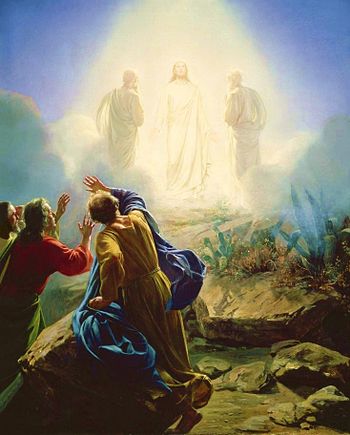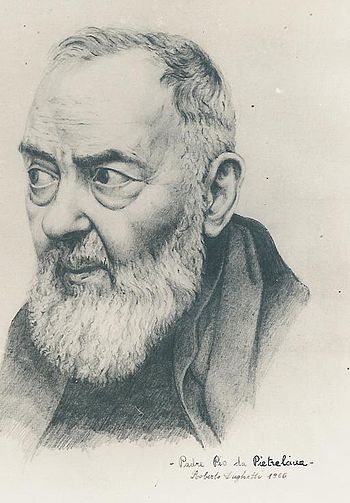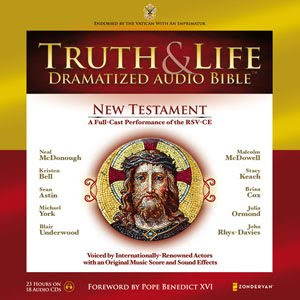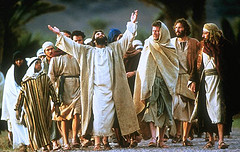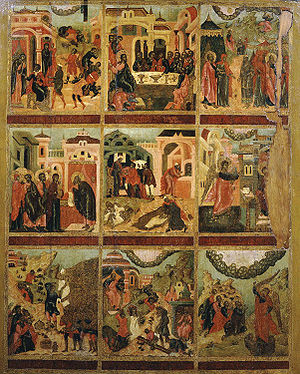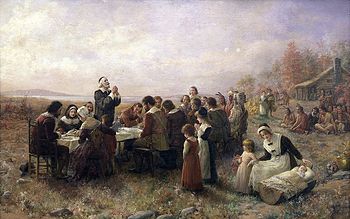
In the United States, Thanksgiving is right around the corner. It is a time to give thanks for all that God has given us. And yet for many, there doesn’t seem to be a lot of be thankful about. Family, financial, spiritual, work, and global worries are in abundant supply. But for one day out of the year, we manage to push those aside and focus on our good graces. But that’s one day. What about the other 364? Here’s five ways the rosary can help you be thankful every day.
The Third Joyful Mystery
For thousands of years and hundreds of generations, people’s notion of God was one of a supreme being that was very distant and often very angry. The God as the Israelites knew him was a god of rules, laws, and punishments. But we have the grace to have what millions of people never had — God made man through the being of Jesus Christ. When we pray this mystery, give thanks that we have the opportunity to know God as someone who walked with us, laughed with us, cried with us, and died for us. Unlike millions of people who lived before Jesus’ birth, we have a face to put on God. And while we may be removed from Jesus by nearly 2000 years, we should rejoice that we have the benefit of coming 2000 years after Jesus’ birth, not before.
The Fourth Luminous Mystery
Following a similar theme from the birth of Jesus Christ, how lucky are we that God humbled himself and took on a human form so that we can come to know him more intimately? As we see with Jesus’ clothes turning dazzling white and God’s voice telling the apostles to listen to his son, we get an idea of the majesty in Christ. Jesus could have come into this world floating down from Heaven in dazzling glory as witnessed in the Transfiguration. But he didn’t. And we should be ever thankful about that. Jesus, the human, wasn’t “God Lite” who wasn’t any less approachable or mysterious as God himself. No, he was a human like all of us who we could relate with and listen to his teachings in plain, not intimidating speech. Of all the ways God chose to manifest himself, we should give thanks that he chose the person of Jesus Christ.
The Fifth Joyful Mystery
I always associate the Finding of Jesus in the Temple with the Sacrament of Reconciliation. Mary and Joseph’s searching for Jesus and then finding him in his father’s house is a nice analogy to how we rediscover God’s grace, which we lose through sin, through Confession. But where does thanksgiving come into this mystery? I don’t know about you, but I’m thankful that every day is a day to live in God’s grace but also another opportunity to rediscover that grace through Confession if I’ve lost it (either in part through venial sin or whole through mortal sin). Once you die, you no longer have that ability to seek forgiveness. Be thankful that no matter how deep in sin or despair you are, as long as you can draw breath you have an opportunity to rediscover God’s grace and achieve the same glory in Heaven as the saints.
The Fifth Sorrowful Mystery
How can we not be eternally thankful for Jesus’ sacrifice for our sake? Through his crucifixion, Jesus redeemed all of mankind for the disobedience of Adam and Eve — the original sin. We are thankful that through his sacrifice, Jesus made Heaven a possibility for all humanity, something that wasn’t open to us before. Humans failed God through Adam and Eve and we continue to fail through sin. And we would live in despair if there was no way to set things right. And that is exactly what Jesus’ crucifixion was — setting things right that were once broken.
The Fourth Glorious Mystery
How fortunate we are that God set aside Mary to serve a special role, not just in her earthly life, but in her heavenly one too. She was assumed into Heaven and acts as our mediatrix to her son, Jesus. But what do we mean by mediatrix? That’s just a special way of saying that Mary is our spiritual lawyer (but with a heart). Like how a legal lawyer helps us navigate the often confusing laws and regulations, Mary helps us navigate the often difficult spiritual waters. She helps us understand what is not understandable — God. We should be thankful that God, knowing that we need some help understanding his truth, set aside Mary to act as our guide.


